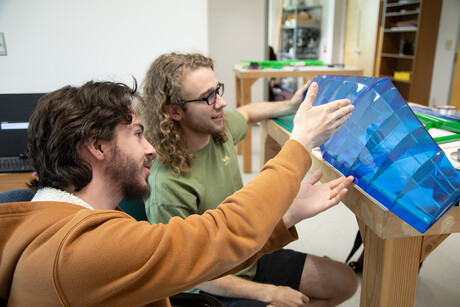The story is told of a little guy who was given two quarters before going to church. One, he was told, was for Jesus. One was for him. As he was crossing the street, one slipped out of his hand and rolled down a drain. “Well,” said the little boy, “that’s too bad. I just lost Jesus’ quarter!”
How often have adults, when faced by financial challenges, reacted in the same way by essentially saying, “Sorry God, I don’t have enough money to return my tithe and offerings right now.”
But God is very specific. He calls it “robbery” when we don’t return our tithe and offerings (Malachi 3). In fact He even goes further. Putting it into a place of our choice is not good enough. He says to return the tithe to the storehouse. Is He particular? If you believe the Bible where Malachi calls it robbery, or a later prophet who says, “To defraud God is the greatest crime of which men can be guilty,” (Ellen G. White, Review and Herald, October 13, 1896) then He most certainly is.
America’s Greatest Sins
Billy Graham said in his sermon, Partners with God, “One of the greatest sins in America today is the fact that we are robbing God of that which rightfully belongs to Him. Actually, we are not giving when we give God one-tenth, for it is a debt we owe. Not until we have given a tenth do we actually begin giving an offering to the Lord!”
But no one should give out of fear, guilt, or even obligation. For “God loves a cheerful giver" (2 Corinthians 9:7).
Millions of Christians of all denominations will gladly testify to the fact that, miraculously, nine-tenths of our money goes farther when paying tithe than ten-tenths when we don’t. And it is interesting that many began paying tithe, not when they could afford it but when they were poor.
Success Stories
John D. Rockefeller said, “I never would have been able to tithe the first million dollars I ever made if I had not tithed my first salary, which was $1.50 a week.”
He articulated the sentiments of other tithe payers and offering givers whose names you recognize: Henry P. Crowell, founder of Quaker Oats; William C. Colgate, founder of Colgate soaps, etc.; Harley Proctor, one of the founders of Proctor and Gamble; Albert A. Hyde founder of Mentholatum; Mathias W. Baldwin, founder of Baldwin Locomotive Works; James C. Penney, founder of JC Penney stores. All these successful people could testify to the validity of God’s promise to pour out a blessing on those who faithfully return their tithes and offerings.
As we think of the Hewlett Packard motto of, “Do we know what we already know?” we should ask ourselves if in fact we know experientially what by faith God’s people have known since Old Testament times.
If you haven’t experienced this incredible blessing, I’d challenge you in God’s words, “'Test me in this,' says the LORD Almighty, 'and see if I will not throw open the floodgates of heaven and pour out so much blessing that you will not have room enough for it'" (Malachi 3:10 NIV).









